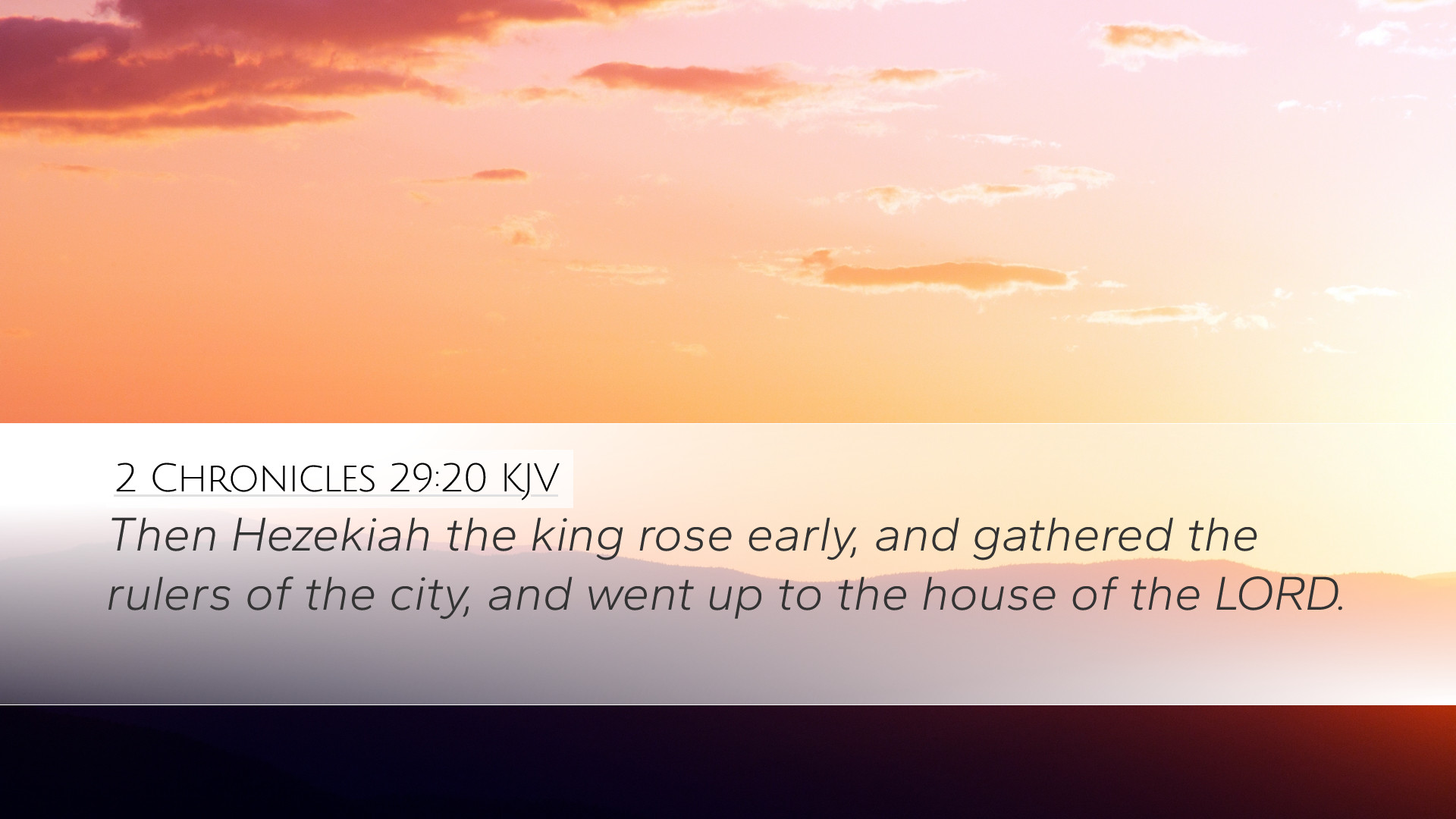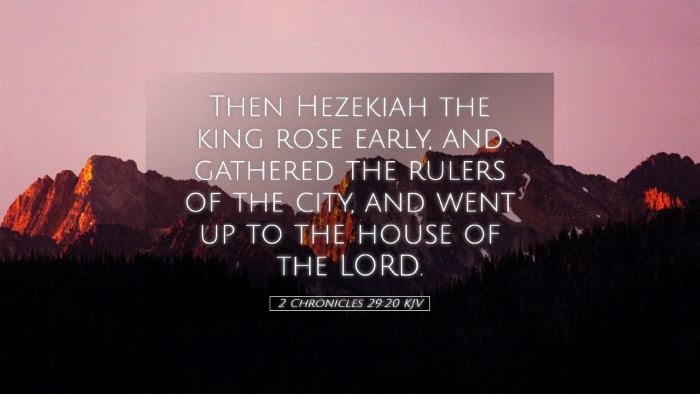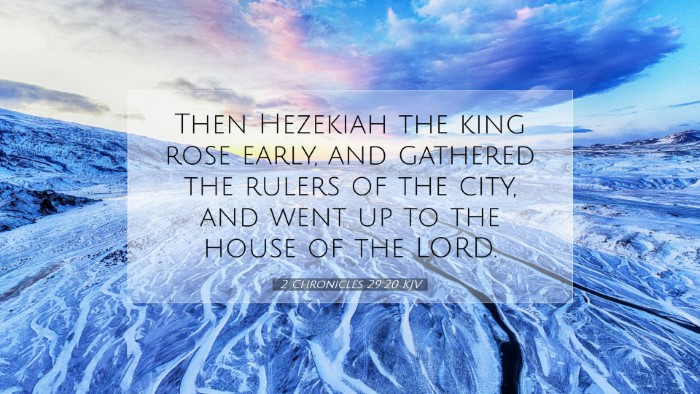Commentary on 2 Chronicles 29:20
Verse Reference: 2 Chronicles 29:20 - "Then Hezekiah the king rose early, and gathered the rulers of the city, and went up to the house of the LORD."
Introduction
This pivotal verse in 2 Chronicles marks a significant moment in the reign of King Hezekiah, illustrating his dedication to restoring the worship of Yahweh in Judah after a period of neglect and idolatry. The insights provided by various public domain commentaries illuminate the implications of Hezekiah’s actions and the theological significance of his reforms.
The Context of Hezekiah's Reforms
Hezekiah ascended the throne of Judah amidst spiritual and political turmoil. His predecessor, Ahaz, had led the nation into idolatry and neglect of the temple. The spiritual revival initiated by Hezekiah represents a critical turn towards covenant faithfulness and communal worship.
Hezekiah’s Early Rising
Matthew Henry notes the symbolism of Hezekiah rising early, which reflects his earnestness and enthusiasm for the reform of worship practices. This act signifies an urgency and prioritization of spiritual matters amidst a corrupt society.
Gathering the Rulers
Hezekiah's gathering of the city’s rulers demonstrates a leadership structure that emphasizes collective responsibility in restoring true worship. Albert Barnes highlights that this assembly indicates Hezekiah’s intention to involve local leaders in the reformation, reinforcing communal governance and accountability in faith practices.
Going Up to the House of the LORD
The journey to the house of the LORD is significant. Adam Clarke comments that this indicates a physical and spiritual ascent, reflecting the importance of the temple as the center of worship and divine presence. The temple signifies restoration not just of a building, but of the relationship between God and His people.
Theological Implications
This verse presents several theological principles central to the understanding of revival and reform in the life of a believer and community.
Repentance and Restoration
Hezekiah’s actions symbolize the need for repentance followed by restoration of worship. As Matthew Henry elucidates, true revival begins with leaders who are committed to returning to the foundations of faith. For pastors and theologians, this serves as a reminder that communal worship must be predicated upon genuine repentance and a return to God’s commands.
Leadership in Spiritual Matters
Hezekiah's role as a leader in initiating this reform can serve as a model for modern-day leaders in faith communities. Albert Barnes emphasizes that leaders must take the initiative in spiritual reform, engaging with other leaders and the community to establish a unified approach to worship and obedience to God.
The Importance of Worship
The act of returning to the house of the LORD reflects a deep desire for God’s presence and worship. Adam Clarke asserts that worship is not a mere activity; it is an integral aspect of a believer's life that fosters communion with God. This is particularly pertinent for scholars who study the nature of worship and its implications for spiritual growth.
Application for Today
The lessons from 2 Chronicles 29:20 are timeless and relevant for contemporary Christians. They serve as a blueprint for personal and communal revival.
Personal Revival
Individuals are encouraged to rise early with a heart ready to seek the Lord, emphasizing the importance of prioritizing spiritual growth and daily communion with God.
Community Engagement
Church leaders are called to unite with others in their communities to promote spiritual revival. Hezekiah’s example encourages collaboration among various leaders to strengthen the communal bond of faith.
Restoration of Worship Practices
Revival today may necessitate reevaluating current worship practices and returning to Biblically-based methods of honoring God. This includes acknowledgment of sin, collective worship, and education in biblical truths.
Conclusion
In summary, 2 Chronicles 29:20 captures a transformative moment in Israel’s history under King Hezekiah’s leadership. The application of these insights from public domain commentaries highlights the importance of personal and communal revival, true worship, and spiritual leadership. For pastors, students, theologians, and Bible scholars, this verse is a poignant reminder of the ongoing call to return to the heart of worship and seek the Lord earnestly.


